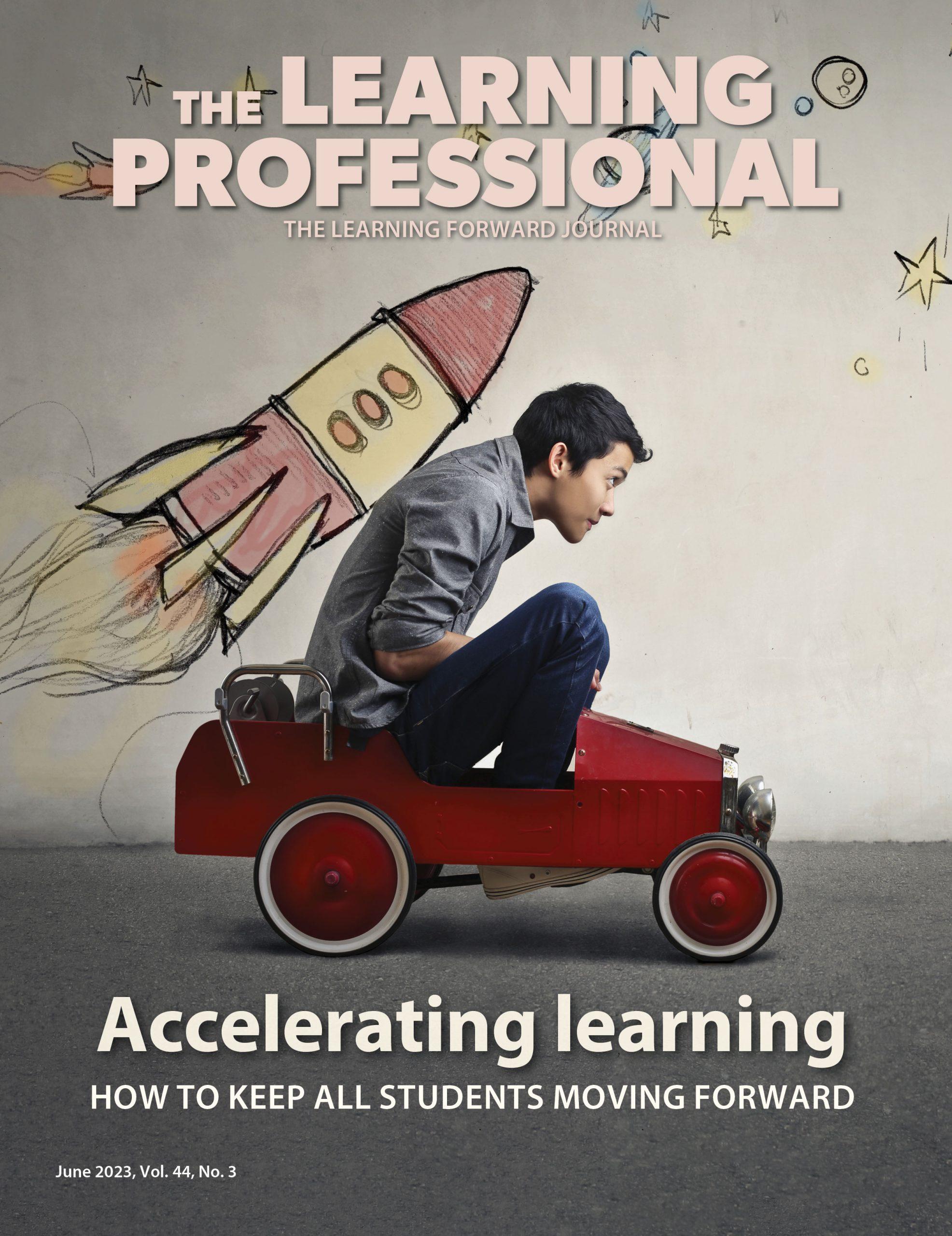The power of thinking big
By Eric Celeste Celeste
Categories: Collaboration, Learning communitiesDecember 2016
Who knew that groups of Yucatan midwives, Liberian tailors, meat cutters, and insurance claims processors would contribute so mightily to improving public education? Etienne Wenger knew. Wenger, an educational theorist and practitioner, with his writing partner studied the way these groups indoctrinated new members and apprentices. Their observations on what they called “situated learning” led to Wenger’s seminal work Communities of Practice (Wenger, 1998), in which he established the concept that would become what we now know as the definition of communities of practice: groups of people who share a concern or a passion for something they do and learn how to do it better as they interact regularly (Wenger & Wenger-Trayner, 2015).
As such, communities of practice have become important tools for districts striving to improve teacher quality in a way that improves student outcomes. Communities of practice have increasingly been used to help groups of educators share concerns, improve expertise, and share knowledge. Conceptually, communities of practice are different than project teams or communities of interest. For example: Membership isn’t defined by task as it is in project teams, and members of a community of practice are active practitioners, not simply people with an interest in a field or subject area.
Often, the formation of a community of practice is organic, whether in education or other fields. A group forms around challenges presented by new initiatives or to share tips or best practices. Social platforms and group networking technology in the workplace have made this practice remarkably easy.
But scaling the benefits of communities of practice requires a more rigorous, intentional approach. Last year, Learning Forward realized that it could add structure and support to the community of practice model, take it across systems, and use it to help large groups of educators wrestle with their most vexing concerns. That’s why Learning Forward, with support from the Bill & Melinda Gates Foundation, created the Redesign PD Community of Practice — to serve as the hub in a multisystem effort to capture knowledge about successes and failures that will undergird future efforts to redesign professional learning systems.
Michelle King, Learning Forward’s associate director of communities, was brought in late last year to lead this effort. “We believe in the power of collaboration and community, and we know that there are gaps within the systems of professional learning, within our school districts. We asked ourselves, ‘How could we change that?’ ”
The Redesign PD Community of Practice was designed to tackle problems Learning Forward has long identified as systemic: that the impact of professional development initiatives on teacher practice or student outcomes is not well understood; that professional learning is often incoherent or too diluted to have sustained benefit; and that few systems have decision-making processes for continuously improving their professional learning portfolios. So knowing how to improve teacher practice didn’t help if results couldn’t be achieved at scale.
One way to change that dynamic, King and the Redesign PD team realized, was to harness the power of collaboration across systems to solve their most pressing challenge. “We needed to find out what are the needs and the problems that must be solved,” King says, “and then we need to attack those together as a true community of learners.”
Thus in December 2015 Learning Forward launched the Redesign PD Community of Practice in 20 U.S. school districts and charter management organizations — the group has since grown to 22 — to improve the design and implementation of professional learning. Its mission is to ensure that teachers measurably improve their practice and thereby accelerate student growth. Each participating system has committed to making dramatic progress on one of two self-identified problems of practice by mid-2017:
- How to strengthen the measurement of the impact of professional learning on teacher practice and make decisions based on these measures; or
- How to increase the coherence and relevance of professional learning, such that teachers experience professional learning as useful, timely, and relevant to their classroom practice, and abandon those initiatives that distract or dilute teachers’ focus.
The scale of this effort — the participating systems collectively enroll more than 5% of public school students in the country — is why you’ll read about snapshots and lessons learned from the field in this issue of JSD.
But that’s not the only discussion of collaborative learning the issue discusses. You’ll read about other examples of collective impact, the broad cross-district and cross-state coordination that can lead to large-scale learning change. Whether it’s a network of superintendents in New Jersey or literacy teachers in New England or entire districts in Southern California, these stories strongly suggest that, as Suzanne Simons writes in her article that begins on p. 38, “Collective work done well can accelerate their learning and the achievement of their students.” If that’s the outcome of a well-structured community of practice, then by definition it’s a community worth exploring.
References
Wenger, E. (1998). Communities of practice: Learning, meaning, and identity. Cambridge, United Kingdom: Cambridge University Press.
Wenger, E. & Wenger-Trayner, B. (2015). Introduction to communities of practice. Available at https://wenger-trayner.com/introduction-to-communities-of-practice.
Categories: Collaboration, Learning communities
Recent Issues
TAKING THE NEXT STEP
December 2023
Professional learning can open up new roles and challenges and help...
REACHING ALL LEARNERS
October 2023
Both special education and general education teachers need support to help...
THE TIME DILEMMA
August 2023
Prioritizing professional learning time is an investment in educators and...
ACCELERATING LEARNING
June 2023
Acceleration aims to ensure all students overcome learning gaps to do...








